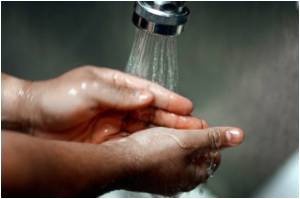
To experiment this new theory, scientists Spike W. S. Lee and Norbert Schwarz, affiliated with the U-M Institute for Social Research (ISR) and the Ross School of Business in addition to the Department of Psychology conducted a study amongst undergraduate students.
The students were offered to pick 10 out of 30 CDs and rank them in order of their preference. Later, the experimenter offered them a choice between their 5th and 6th ranked CDs as a token of appreciation.
Following that choice, participants completed a seemingly unrelated product survey of liquid soap. Half of them merely examined the bottle before answering while the others tested the soap by washing their hands. After completing a filler task, participants were asked to rank the 10 CDs again.
"People who merely examined the soap bottle dealt with their doubts about their decision by changing how they saw the CDs: As in hundreds of earlier studies, once they had made a choice, they saw the chosen CD as much more attractive than before and the rejected CD as much less attractive. But hand washing eliminated this classic effect. Once participants had washed their hands, they no longer needed to justify their choice when they ranked the CDs the second time around," Schwarz said.
The researchers replicated the findings by conducting a similar study using jars of fruit jams and antiseptic swipes, which replaced the CDs and the soap, respectively.
Advertisement
The scientists are now contemplating if the effects of this study spread to other aspects of life as well, such as choice of one car over another or one partner over another.
Advertisement
Source-ANI
TAN










